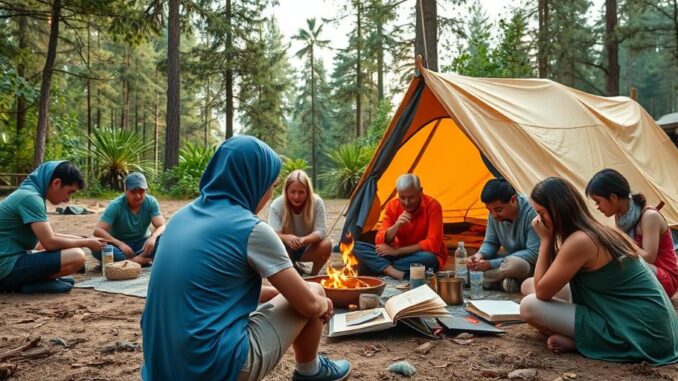
Summary
Summer camps offer a unique blend of therapy, support, and fun, helping teens and young adults break free from addiction and build a foundation for lasting recovery. They provide a safe and structured environment away from everyday triggers, fostering resilience, self-esteem, and crucial life skills. These programs represent a beacon of hope, empowering individuals to rewrite their stories and embrace a brighter future.
** Main Story**
Addiction? It’s like a relentless storm, isn’t it? Wreaking havoc not just on individuals, but families and entire communities too. And for young people, teens and young adults battling substance use, the road to recovery? Well, it can feel like climbing a mountain, a daunting task. But, there’s a really interesting and, I think, effective approach gaining traction: summer camps specifically designed for those in recovery. I’m not talking about your average summer camp; these are different. They mix therapy, support, and those classic camp activities, creating a safe and structured place for healing and personal growth. It’s a unique idea, really.
A Safe Space to Heal and Grow
Think of these summer camps as sanctuaries, a retreat from the everyday. Somewhere far removed from the usual pressures and those all-too-familiar triggers. It’s a break from the routines and the environments that might be feeding into substance abuse. You know, allowing these individuals to really focus on their recovery in a supportive environment. The structured environment of the camp provides stability and a sense of routine, something that’s especially beneficial for those just starting out on their recovery journey. I remember reading about one camp that implemented a “no phone” policy for the first two weeks. Hard at first, sure, but apparently it made a huge difference in helping campers disconnect from external stressors and focus on themselves.
Therapy and Support
Now, these aren’t just fun and games, there’s real work being done. These specialized camps offer a variety of therapeutic approaches tailored to each individual. Individual and group therapy are common, as is family counseling. However, they also incorporate more holistic practices like art therapy and mindfulness exercises. The staff, the counselors—they’re trained and provide guidance, support, and help these folks develop coping mechanisms, address underlying issues, and start building a foundation for long-term sobriety. Peer support is essential, you know? It’s fostering that sense of community, shared experience. Think about it; connecting with others who get the challenges of addiction? Incredibly powerful. It reduces feelings of isolation and shame and gives them a network they can continue to rely on after camp ends.
Building Strength Through Recreation
Beyond all the therapy though, they also have your typical camp activities, like swimming, hiking, sports, and arts and crafts. Believe it or not, engaging in these activities provides numerous benefits:
- Boosting Self-Esteem: Successfully participating in new things and overcoming challenges? You bet that helps build confidence.
- Developing Life Skills: Camp helps with teamwork, communication, problem-solving, all essential for life in recovery. Let’s not forget how important these are for future relationships too.
- Promoting Healthy Habits: Focusing on physical activity and getting outdoors encourages a healthy lifestyle and provides positive outlets for stress and anxiety.
- Creating Lasting Memories: Camp creates positive associations with sobriety, making the recovery journey more sustainable and enjoyable.
I’ve even heard stories of campers who discover hidden talents during their time there, like a knack for painting or a passion for rock climbing. It’s about finding healthy ways to channel their energy and emotions, finding a new purpose, and proving to themselves that they’re capable of anything they set their mind to.
Hope Spreads
It’s not just about the individual either. These camps often provide support and resources for families, mending relationships and creating a stronger support system for continued recovery, which is really important. These programs send a message of hope to communities that are struggling with addiction. They show that recovery is possible. And that, with the right support, individuals can break free from that cycle and build a brighter future. I believe it is a great solution for struggling individuals, and I hope to see it expand even more in the future.


Be the first to comment